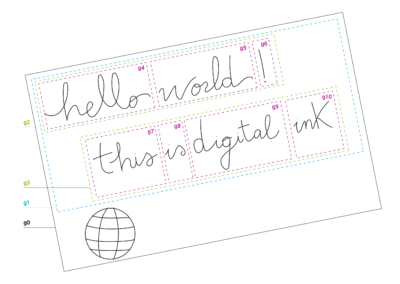In the ever-evolving landscape of education, the significance of digital learning has become increasingly evident. The traditional brick-and-mortar classrooms are making way for a more dynamic and accessible approach – digital education. This transformative shift is not merely a trend but a necessity that is reshaping the way we learn and prepare for the future.
The Importance of Digital Education:
Global Accessibility:
Digital education not only transcends traditional boundaries but becomes a powerful tool for inclusivity. It reaches individuals in remote areas, providing them access to a wealth of educational resources previously unavailable. The internet acts as the great equalizer, breaking down geographical barriers and ensuring that education is no longer a privilege confined to urban centers but a fundamental right accessible to anyone with an internet connection.
Adaptive Learning:
The shift to digital education marks the end of the era of standardized education. Adaptive learning technologies within digital platforms analyze individual learning styles, tailoring content to cater to the unique needs of each student. This customization not only ensures a deeper understanding of concepts but also fosters a learning environment where no student is left behind, addressing diverse learning preferences and abilities.
Cost-Effectiveness:
Digital education stands as a beacon of financial relief for many seeking quality education. Unlike traditional forms of learning, which often come with exorbitant costs for tuition, textbooks, and accommodation, digital education significantly reduces these financial burdens. This cost-effectiveness not only democratizes education but also enables a more diverse demographic to access high-quality learning materials.
Real-time Updates:
In the ever-evolving landscape of knowledge, real-time updates become imperative. Digital education seamlessly adapts to the rapid changes in the digital realm, ensuring that students are equipped with the latest information and insights. This is particularly crucial in fields like technology and science, where outdated information can hinder progress. Digital education becomes a dynamic force, providing students with real-time knowledge that is essential for success in their chosen fields.
Enhanced Engagement:
Digital education transcends the monotony of traditional teaching methods by incorporating multimedia elements, interactive simulations, and gamified learning modules. This not only captures the attention of students but also fosters a genuine enthusiasm for learning. By transforming education into an exciting and interactive journey, digital platforms cultivate a love for acquiring knowledge, making the learning process both enjoyable and impactful.
The Future of Digital Education:
Rise of Online Degrees:
As the world embraces digital education, online degrees are becoming increasingly recognized and accepted. Renowned institutions are now offering accredited programs, and employers are recognizing the value of skills acquired through online education. The future sees a paradigm shift where online degrees become a credible and practical alternative to traditional qualifications, providing individuals with flexibility and accessibility.
Integration of Artificial Intelligence (AI):
AI is at the forefront of revolutionizing education. From personalized learning experiences to intelligent tutoring systems and automated assessments, AI is reshaping the educational landscape. As AI continues to advance, it will play a pivotal role in tailoring education to individual needs, ensuring a more effective and efficient learning process that caters to the unique strengths and weaknesses of each student.
Blockchain in Education:
The incorporation of blockchain technology in education ensures not only security but also credibility in credentials. This innovative approach streamlines the verification of qualifications, making the hiring process more efficient and transparent. Blockchain in education is poised to revolutionize the way academic achievements are documented and recognized, providing a secure and unalterable record of an individual’s educational journey.
Virtual Reality (VR) and Augmented Reality (AR):
Digital education is taking a leap into immersive technologies like VR and AR, transforming the traditional learning experience. Virtual field trips, interactive simulations, and immersive experiences bring learning to life, making complex concepts more understandable and memorable. These technologies not only enhance comprehension but also make education more enjoyable and impactful.
Global Collaboration:
Digital education fosters global collaboration, breaking down cultural and geographical barriers. Students from diverse backgrounds can now work together on projects, exchange ideas, and gain insights from different perspectives. This interconnectedness prepares individuals for a globalized workforce, promoting cultural understanding and collaboration on an unprecedented scale. Digital education becomes a bridge that connects minds from around the world, fostering a collaborative and inclusive learning environment.
In conclusion, digital education is not just a technological advancement but a fundamental shift in the way we acquire knowledge. Its importance lies in its ability to break down barriers, adapt to individual needs, and prepare individuals for the challenges of the future. As we navigate the uncharted territories of tomorrow, embracing and investing in digital education is not just a choice but a prerequisite for success in the fast-paced, interconnected world we live in.
Subscribe for Wacom Ink newsletter here, read our articles here or follow us on Twitter and LinkedIn.







